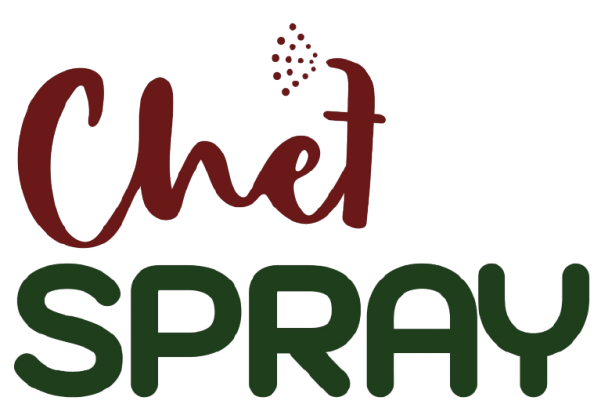Cooking your meals at home is one of the best steps you can take toward a healthier lifestyle. However, a question that often lingers in the back of many health-conscious minds is: Does cooking your food destroy its nutrients?
You may have heard that raw vegetables are healthier or that boiling robs food of its essential vitamins. These claims raise valid concerns about nutrient loss in cooking. But what does the science actually say? Do all cooking methods diminish the nutritional value of your meals? Or can cooking actually help you absorb nutrients more effectively?
Let’s break it down. In this comprehensive guide, we’ll explore how different cooking methods affect food’s nutritional content, which nutrients are sensitive to heat, and how you can make smarter choices to retain the most benefits from your food.
Understanding the Relationship Between Cooking and Nutrients
First, it’s important to acknowledge that food is more than just fuel—it’s a powerful source of vitamins, minerals, antioxidants, and other compounds that play essential roles in your body. So, when preparing healthy food, cooking and nutrients must go hand-in-hand.
Yes, cooking can impact nutrient levels. However, it’s not always a negative impact. In some cases, heat makes certain nutrients more bioavailable—meaning your body can absorb them more easily after they’ve been cooked.
So the answer isn’t black and white. Some nutrients are lost during cooking, while others are enhanced.
Which Nutrients Are Most Sensitive to Cooking?
Before we dive into the best cooking methods for nutrient retention, it's helpful to understand which nutrients are most vulnerable to heat and water.
1. Water-Soluble Vitamins
These are the most susceptible to nutrient loss in cooking, particularly when boiling or overcooking food.
- Vitamin C – Found in citrus fruits, broccoli, bell peppers, and leafy greens. It’s highly sensitive to heat, light, and oxygen.
- B Vitamins – Including folate, thiamin, and riboflavin, these are also sensitive to heat and can leach into cooking water.
2. Fat-Soluble Vitamins
These tend to be more stable when exposed to heat.
- Vitamins A, D, E, and K – Found in carrots, spinach, fish, and oils. Cooking does not significantly degrade them, and adding fat (like olive oil) can actually enhance absorption.
3. Minerals
Minerals such as potassium, magnesium, calcium, and iron are generally heat-stable. However, they can still be lost if the cooking water is discarded.
Cooking Methods and Their Impact on Nutrients
The way you cook your food matters. Here’s a breakdown of popular cooking methods and how they affect food nutrient retention.
1. Boiling
Boiling can lead to substantial nutrient loss in cooking, particularly for water-soluble vitamins. Since these nutrients leach into the water, they are often discarded unless you're consuming the broth or liquid.
Pro Tip: Use minimal water and avoid overcooking. Try incorporating the cooking water into soups or sauces to reclaim lost nutrients.
2. Steaming
Steaming is one of the best methods for food nutrient retention. It avoids direct contact with water, preserving water-soluble vitamins like C and B complex.
Bonus: Steaming also maintains the texture and color of vegetables, making meals more visually appealing and palatable.
3. Roasting and Baking
Roasting and baking are dry-heat methods that cause minimal nutrient loss. These techniques are great for root vegetables and meats. However, prolonged exposure to high heat can break down certain antioxidants.
Suggestion: Roast at moderate temperatures and avoid charring or overcooking.
4. Sautéing and Stir-Frying
These methods involve short cooking times at high heat, usually with a bit of oil. While they may cause some vitamin loss, using oil helps retain fat-soluble vitamins and boosts nutrient absorption.
Pro Tip: Use healthy oils like olive or avocado oil to support nutrient bioavailability.
5. Microwaving
Microwaving often gets a bad rap, but it’s actually one of the most effective ways to retain nutrients. It uses minimal water and shorter cooking times, which preserves nutrients better than many other methods.
Tip: Use microwave-safe dishes and avoid overcooking.
6. Grilling
Grilling can enhance flavor, but it does come with caveats. High temperatures can degrade some nutrients and potentially form harmful compounds if the food becomes charred.
Advice: Grill over medium heat and avoid blackening meats or vegetables.
When Cooking Enhances Nutrient Absorption
Interestingly, not all cooking is detrimental. In some cases, heat can make certain nutrients more accessible.
1. Lycopene in Tomatoes
Cooking tomatoes increases the availability of lycopene, a powerful antioxidant associated with reduced risk of heart disease and certain cancers.
2. Beta-Carotene in Carrots and Sweet Potatoes
Cooking breaks down the cell walls in these foods, making beta-carotene more bioavailable. Your body converts beta-carotene into vitamin A, essential for vision and immune function.
3. Spinach and Oxalates
Raw spinach contains oxalates, compounds that inhibit calcium and iron absorption. Cooking reduces oxalate levels, making these minerals more absorbable.
Practical Tips to Maximize Food Nutrient Retention
Now that you understand the science behind cooking and nutrients, here are some practical tips to minimize nutrient loss while preparing healthy food:
- Cook for shorter times: The longer you cook, the more nutrients are lost.
- Use less water: Especially for vegetables. Opt for steaming over boiling when possible.
- Keep the skin on: Many nutrients are concentrated just under the skin of fruits and vegetables.
- Store food properly: Some vitamins, like vitamin C, degrade over time when exposed to air and light.
- Don’t overcut: Chopping into tiny pieces increases surface area and potential for nutrient loss.
- Combine with healthy fats: This helps your body absorb fat-soluble vitamins.
- Eat a mix of raw and cooked foods: Balance is key to maximizing nutrient intake.
The Bottom Line: Should You Worry About Nutrient Loss in Cooking?
So, does cooking your food destroy its nutrients?
The answer is: It depends. While some nutrients are sensitive to heat and water, others become more bioavailable through cooking. Rather than avoiding cooked food altogether, focus on cooking methods that enhance food nutrient retention.
Use gentle techniques like steaming, stir-frying, or microwaving. Be mindful of overcooking and choose cooking oils wisely. And above all, aim for variety. Eating a combination of raw and cooked vegetables, whole grains, and lean proteins ensures you're getting the most out of your meals.
Cooking isn’t just about nourishment—it’s about enjoyment, culture, and connection. With the right techniques, you can keep your meals flavorful and nutritious.
FAQs About Oils & Cholesterol
1. Which cooking method retains the most nutrients?
Steaming is widely considered one of the best methods for retaining nutrients, especially water-soluble vitamins like vitamin C and B-complex. It uses minimal water and cooks food gently, which helps preserve texture, flavor, and nutritional content.
2. Is it better to eat vegetables raw or cooked?
It depends on the vegetable. Some vegetables, like broccoli and bell peppers, retain more vitamin C when eaten raw. However, others, like carrots, spinach, and tomatoes, actually offer enhanced nutrient absorption when cooked. A healthy balance of raw and cooked vegetables is ideal for maximizing overall nutrient intake.
3. Does microwaving destroy nutrients in food?
Not necessarily. Microwaving can actually preserve nutrients better than some traditional cooking methods like boiling. This is because it cooks food quickly and often with little or no water, reducing the chances of nutrient loss.









